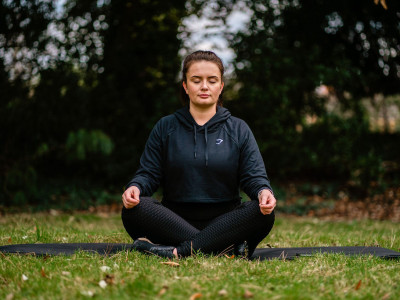- Home
- Anxiety
- Depression
- Emotional Eating
- Living with a long term health condition - Our Talking Health team
- Loneliness
- Menopause
- Mindfulness
- Obsessive compulsive disorder (OCD)
- Panic Attacks
- Phobias
- Pregnancy & Parenthood
- Prolonged Grief (Grieving)
- PTSD
- Sleep Difficulties
- Stress
- Veterans mental health
- Needs We Can and Cannot Meet
- Cognitive Behavioural Therapy (CBT)
- Eye Movement Desensitisation & Reprocessing (EMDR)
- Employment Support
- Counselling for Depression
- Online Self-help
- Mindfulness
- Wellbeing Workshops
- Join the team
- What to expect at your first appointment
- Testimonials
- Talking Health team
- Learn about mental health
- FAQs
- Mental Health Resources
- Blog
- Video Appointments
- Supporting someone through TALKWORKS: A guide for carers and loved ones
- Your feedback
- Making contact if you are deaf
- I need help now
Access support from TALKWORKS
Self-refer to TALKWORKSAccess support from TALKWORKS
Self-refer-
What we can help with
- Anxiety
- Depression
- Emotional Eating
- Living with a long term health condition - Our Talking Health team
- Loneliness
- Menopause
- Mindfulness
- Obsessive compulsive disorder (OCD)
- Panic Attacks
- Phobias
- Pregnancy & Parenthood
- Prolonged Grief (Grieving)
- PTSD
- Sleep Difficulties
- Stress
- Veterans mental health
Access support from TALKWORKS
Self-refer to TALKWORKS - How We Can Help You
- About Us
- Useful Resources
- Get in touch
- Self-refer
How can exercise help to improve our mental health and wellbeing?
While many of us are aware of the physical benefits of exercise, there are also a number of ways that exercise can help us to feel good on the inside too. It’s recommended that all adults (age 19-64) should try to engage in some form of physical activity every day of the week, but even exercising just once or twice a week can help to reduce the risk of heart disease or a stroke. By exercising regularly, it can help us to feel both healthier and happier in ourselves. Ahead of National Fitness Day, we explore the benefits of exercise and why, at TALKWORKS, we believe that exercise can play a key role in helping to improve both your mental and physical wellbeing.
Exercising can feel a bit daunting if you’re new to it or haven’t worked out for a while, but it’s all about finding a way to work out that you enjoy. You may like to meet up with friends and head out for a walk, or you might prefer to work out on your own in the gym, and go for a run, cycle or lift weights. Even if you feel anxious about exercising or just don’t have the motivation to do it, it’s really important to make the time for it; and there are so many ways that your body and mind can benefit as a result of incorporating it in to your everyday life.
Get a better night’s sleep
When we’re not sleeping well, we can feel tired and run down, which can lead to low mood and at times, depression. Exercise can help to calm both your body and mind, enabling you to get to sleep faster while also reducing the chance of you waking up in the night. It can also help you to be more productive on days when you’re feeling tired – even when you really don’t feel like doing it!
Boost your mood and feel good
Exercise can help to improve your self-esteem and leave you feeling good. When you exercise, your body releases endorphins (produced by the brain) which can help you to feel more energised. You can also set goals to help you progress, and then when you reach these goals, you naturally feel a sense of achievement which in turn boosts your mood.
Reduce stress
When stress and anxiety start to build up, it can feel overwhelming. Exercising is a great way to relive some of that pressure. It can help to distract you from the worries that you are experiencing, and offer a change of focus for your thoughts. Yoga and Pilates can help to relax your body and mind, while more intense forms of exercise like running and HIIT release endorphins which leave you feeling good post-workout.
Increases energy levels
According to Everyday Health, exercise boosts cardiovascular health, which enables us to have a greater endurance throughout the day. When our energy levels are low it can have a direct impact on our mood. Everything can feel harder than usual when we are tired, and our bodies can feel more sluggish when we lack energy. By increasing our fitness levels, we’re improving our overall health, which in turn can leave us feeling more energised.
Opportunity to connect with new people
Exercising is a great way to try something different and meet new people. Taking part in a group activity or fitness class offers you the chance to throw yourself into something new, and step outside your comfort zone. Classes also offer the opportunity for interaction with others and are a great way to form new social connections. Plus having an instructor in a class enables you to receive guidance and support, which is particularly helpful if you are nervous about exercising or unsure about how to take the first steps.
Change of environment
Heading outdoors to exercise can be really beneficial for your health and wellbeing. By taking yourself away from your current surroundings, you can switch off more easily from your worries. It also gives you the opportunity to consider your thoughts from a different perspective and assess whether what you are worrying about is really as bad as it seems. Just a 10 minute brisk walk can have a number of health benefits – why not incorporate this into your daily routine and see what a difference it makes?
How else can we improve our mood and mind-set?
While exercise can be really beneficial for helping to improve your health and wellbeing, it’s not the only way to help you if you are struggling. Talking to someone, whether it be a friend, family member of trusted colleague, can really help if you are feeling low, feeling stressed or experiencing increased anxiety. Sometimes opening up to someone and getting things off your chest can help you to feel less stressed and can enable you to see things from a different perspective. If you don’t feel comfortable talking to someone you know, you can reach out to a service like TALKWORKS, and speak to an NHS therapist confidentially, free of charge.
TALKWORKS, Devon’s NHS Talking Therapies service, is open to adults (age 18+) across Devon (outside Devon, which is covered by Plymouth Talking Therapies) and is here to help you to feel more like yourself again. Our therapists will listen to your difficulties and will work with you to help you to overcome these. You don’t need to visit your GP before you can come to TALKWORKS. You can refer yourself either by filling out a self-referral form on our website, or by calling our team on 0300 555 3344 (phone lines are open from 9am – 4:45pm, Monday to Friday).
Related Posts

Understanding prolonged, complicated or traumatic grief
Posted by Sarah Goff on 7 August, 2025

Restoring the mind: Exploring positive mood and self-control in the mindfulness graduates workshop
Posted by Clare Watkins on 2 June, 2025

